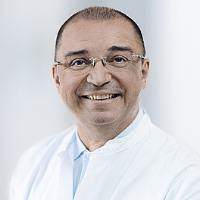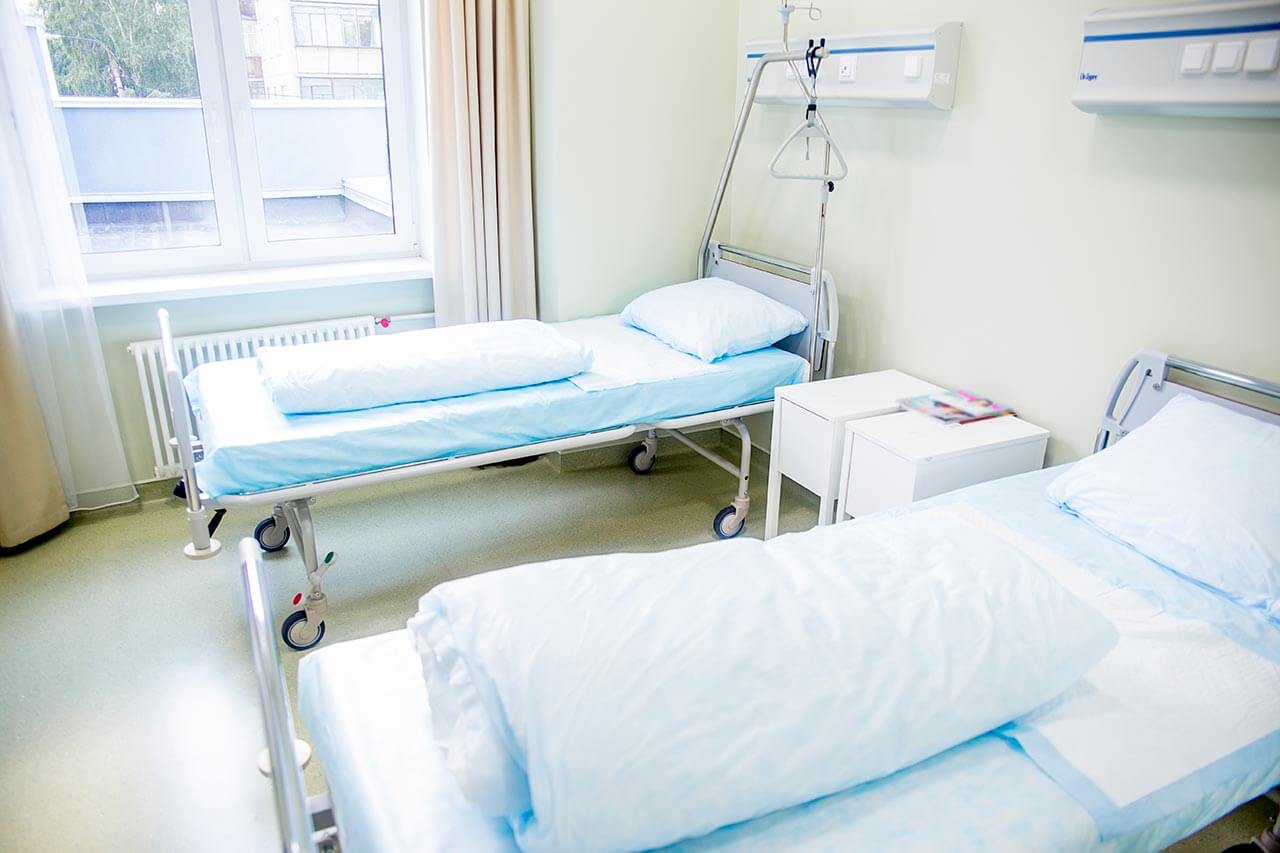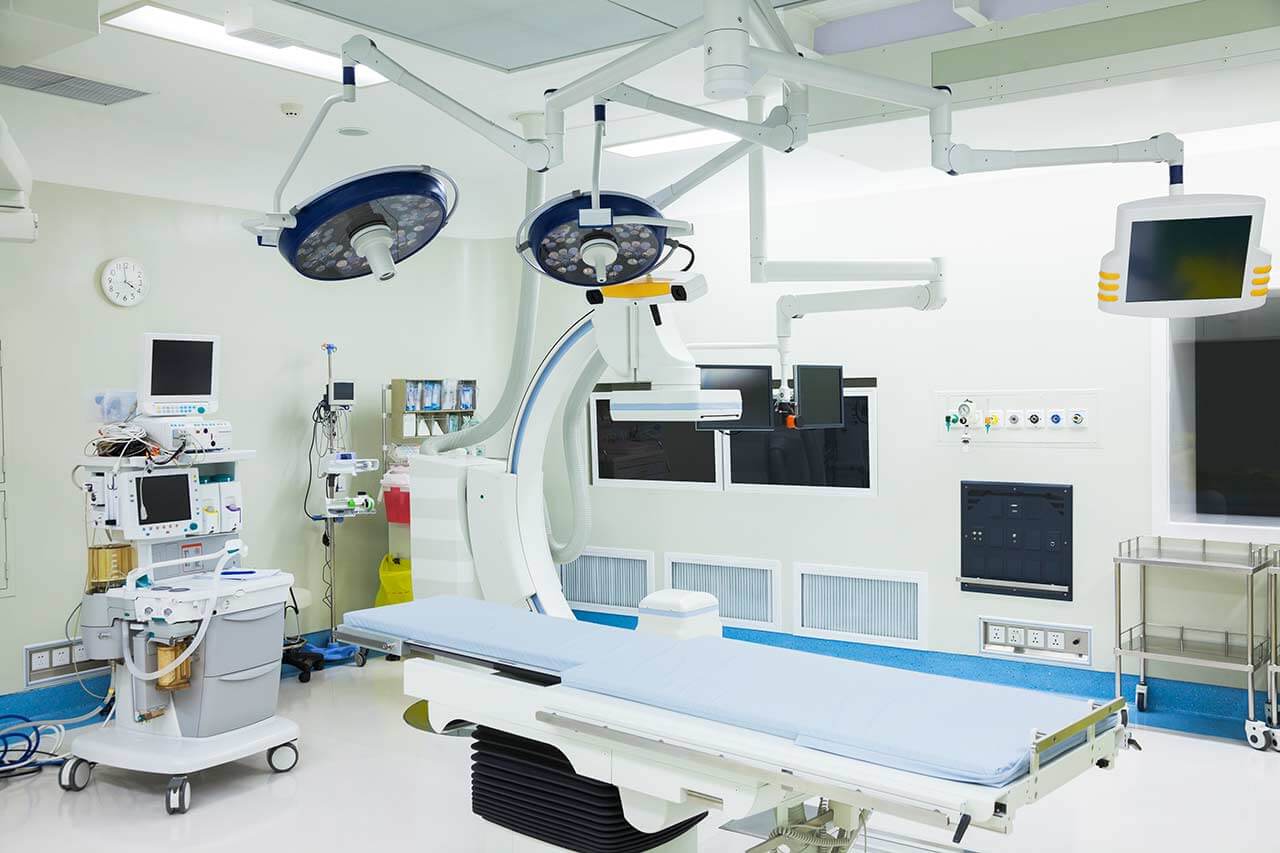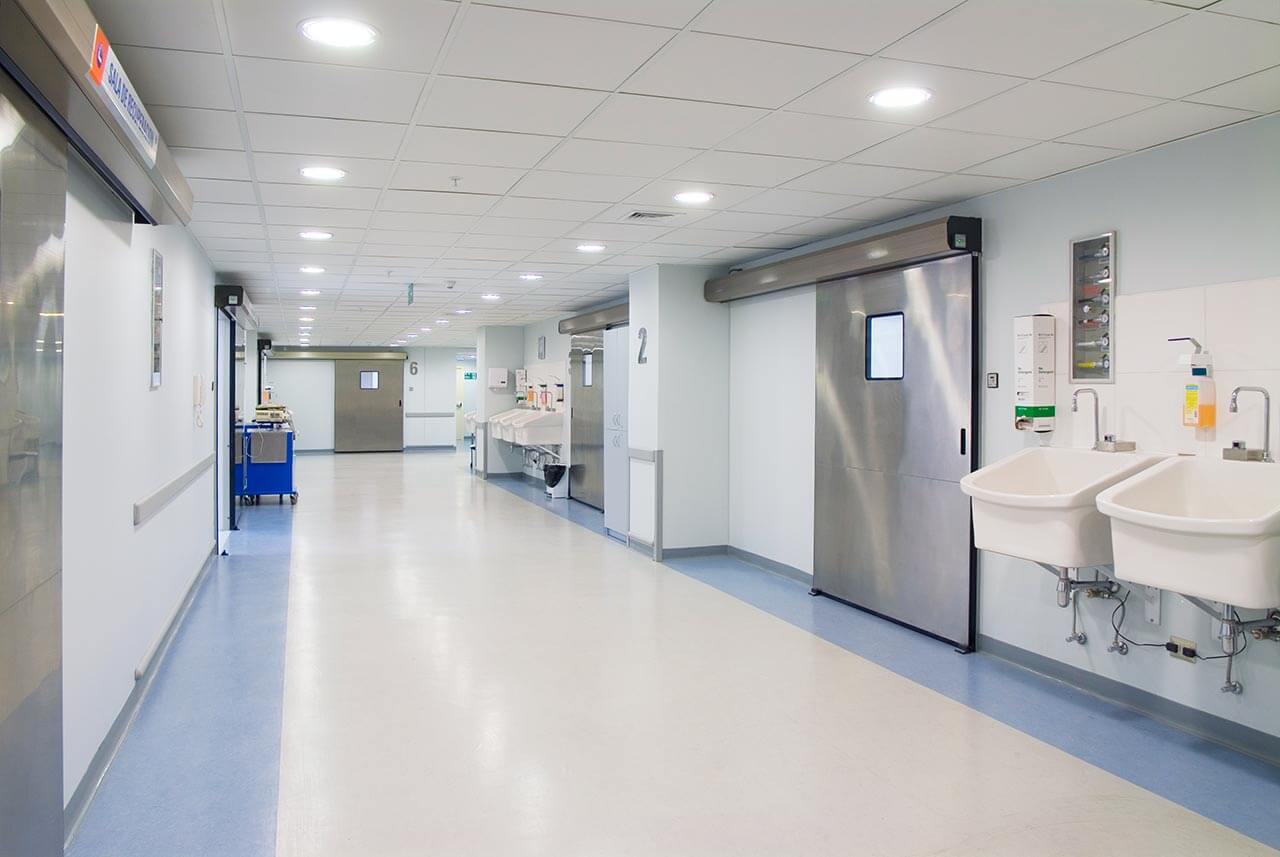
About the Department of Gynecology, Mammology and Obstetrics at University Hospital Oldenburg
The Department of Gynecology, Mammology and Obstetrics at the University Hospital Oldenburg provides a full range of high-precision diagnostics and effective treatment of diseases of the female reproductive system and breast pathologies. The department offers high-quality obstetric services: comprehensive pregnancy management, childbirth, and postpartum care for mother and child. The department's team of gynecologists specializes in the conservative and surgical treatment of pathologies of the female reproductive system. The department specializes in minimally invasive surgery for oncological gynecological diseases and interventions for breast cancer (certified by the German Cancer Society, DKG). The medical facility has 3 high-tech operating theaters where more than 3,000 surgical procedures are performed annually, many of them on an outpatient basis. The department has 48 beds for patient hospitalization. The department has the status of a Level I Perinatal Center, so expectant mothers are guaranteed exceptional quality of obstetric services. More than 2,000 babies are born in the department each year. The department is headed by Prof. Dr. med. Eduard Malik.
The priority area of work of the department's gynecologists is the treatment of malignant diseases of the female reproductive system: cervical cancer, uterine cancer, ovarian cancer, and vulvar cancer. The first-line treatment for the above-mentioned oncological diseases is usually tumor resection surgery, while advanced stages may require more extensive surgery with removal of the uterus, ovaries, fallopian tubes, and affected pelvic lymph nodes. When clinically indicated, surgery is performed using a minimally invasive approach, which is less invasive and promotes rapid recovery in the postoperative period. Surgery is complemented by conservative treatments such as chemotherapy, radiation therapy, hormone therapy, and immunotherapy. The diagnosis of cancer always affects the emotional state, therefore the department offers the services of a competent psychologist: a specialist helps to cope with apathy and depressive states and to set up for a positive outcome of the therapy.
Another important clinical focus of the department is the treatment of cervical dysplasia. Since 2016, a specialized center for the treatment of this gynecological pathology, certified in accordance with the standards of the German Cancer Society (DKG), has been operating on the basis of the department. The main danger of cervical dysplasia is that it may potentially lead to the development of an oncological process. In this regard, the specialists try to identify the pathology and carry out the treatment as soon as possible. When prescribing treatment, the gynecologist takes into account the stage of cervical dysplasia: early stages of the disease can be treated with pharmacotherapy; in more complex cases, the department's doctors prefer such less traumatic methods as cryodestruction, electrocoagulation, radiofrequency, and laser therapy. The last-line treatment is surgery, during which gynecologists remove the affected area of the cervix or perform its amputation – this is a sparing operation that allows to get rid of cervical dysplasia and preserve fertility.
For more than 20 years, the department has been successfully treating breast diseases, the most common and dangerous of which is cancer. In 2004, the department was certified in accordance with the requirements of the German Cancer Society (DKG), and has been successfully recertified on a regular basis. Patients with breast cancer are treated in close cooperation with oncologists, radiotherapists, nuclear medicine specialists, and radiologists, which helps to achieve the best results. The therapeutic process begins with a comprehensive diagnosis that includes ultrasound and mammography; if suspicious changes are detected, magnetic resonance imaging and biopsy are performed. It should be noted that the department uses vacuum-assisted breast biopsy with the innovative Mammotome device. This type of biopsy is performed under local anesthesia on an outpatient basis, while it is minimally traumatic and can detect the slightest pathological changes in the mammary gland. Once the diagnosis is confirmed, breast specialists begin to develop an individualized treatment regimen. The first-line treatment is usually surgery. It is noteworthy that most breast cancer surgeries are organ-preserving, which makes it possible to avoid complete removal of the mammary gland. In complex cases, doctors perform a mastectomy. After such surgery, patients are offered breast plastic surgery using silicone implants, lipofilling, or a combination of the two. Surgery is usually accompanied by conservative treatment: specialists perform chemotherapy, hormone therapy, immunotherapy, and radiotherapy.
The department's team of obstetricians provides comprehensive medical care before, during, and after childbirth. The department has three state-of-the-art labor and delivery suites with specialized birthing chairs and monitoring systems. In addition to traditional obstetrical services, aromatherapy baths, homeopathy, and acupuncture are available to help relieve pain during labor. The labor and delivery suite also includes a water birth room, ultrasound rooms, a neonatal intensive care unit, and a specially equipped operating room for cesarean sections. The department's obstetricians are highly professional in their field and have a wealth of experience with high-risk and multiple pregnancies. Each year, more than 2,000 babies are born in the department's delivery rooms, so it is no surprise that the department enjoys the status of one of the best and largest maternity hospitals in Germany.
The department's range of medical services includes the following:
- Gynecology
- Minimally invasive surgery through a vaginal approach
- Hysterectomy (surgical removal of the uterus)
- Surgery for benign vaginal and labial neoplasms
- Surgery for the creation of an artificial vagina
- Vaginoplasty
- Sling procedures for urinary incontinence
- Laparoscopic surgery on the pelvic organs
- Surgery for fallopian tube and ovarian diseases (for example, removal of cysts and sterilization)
- Surgery for uterine diseases (for example, removal of fibroids and malignant tumors)
- Surgery for endometriosis
- Adhesiolysis
- Robotic surgery using the da Vinci system for benign and malignant gynecological diseases
- Minimally invasive surgery through a vaginal approach
- Mammology
- Surgery for breast cancer
- Breast-conserving surgery for breast cancer
- Reconstructive breast plastic surgery after radical mastectomy using silicone implants, lipofilling techniques, or a combination of both
- Surgery for benign breast diseases
- Reconstructive breast plastic surgery for congenital and acquired malformations: breast augmentation and reduction
- Surgery for breast cancer
- Obstetrics
- Prenatal ultrasound diagnostics
- Intrauterine therapy for congenital fetal abnormalities
- Childbirth and postnatal care for mother and child and pain relief during childbirth using epidural anesthesia, acupuncture, homeopathy, aromatherapy, etc.
- Other medical services in gynecology, mammology, and obstetrics
Curriculum vitae
Since April 1, 2006, Prof. Dr. med. Eduard Malik has been the Head Physician of the Department of Gynecology, Mammology and Obstetrics at the University Hospital Oldenburg. Prior to that, he worked in the Department of Gynecology at the University Hospital Regensburg. He graduated from the University of Hamburg and received his medical degree from the Johann Wolfgang Goethe University Frankfurt. In 2000, he completed his habilitation at the University Hospital Luebeck. From 2002 to 2004, Dr. Eduard Malik was a Senior Physician and Deputy Medical Director at the University Hospital Aachen. In 2004, he was appointed as a Professor at the University of Regensburg.
Prof. Malik's clinical interests include the treatment of malignant diseases of the female reproductive system and the performance of minimally invasive gynecologic procedures. His scientific work focuses on the study of endometriosis.
Photo of the doctor: (c) Klinikum Oldenburg AöR




